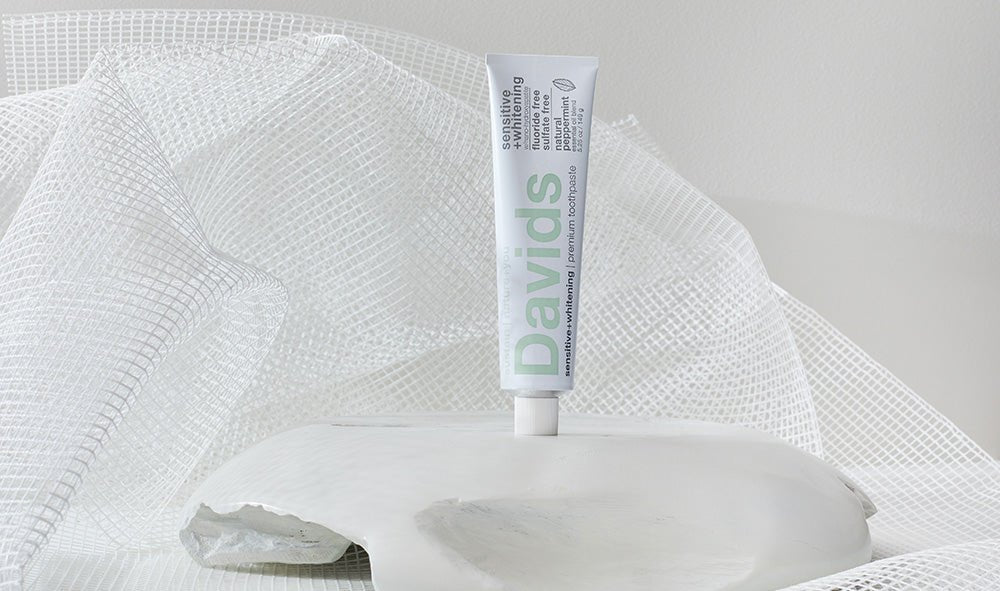Your little ones are brushing their own teeth. Well, by brushing we mean eating, swallowing, spitting, getting it up their noses, and making a mess.
Anyways, we digress.
With all the potential swallowing going on, it might have you thinking long and hard about what’s actually inside your “kids toothpaste” tube. If it’s a conventional kids' toothpaste, you’ve probably come across an unsettling list of ingredients. After all, what in the world are “trisodium phosphate” and “flavor”?
You start looking for better, natural alternatives. You’ve found some natural toothpastes with fluoride and some with this funky-sounding ingredient called hydroxyapatite. That’s a long and weird word that doesn’t sound natural at all. Is it even safe for your kids?
The answer is yes, and we’re here to explain how and why. So you can rest easy knowing that hydroxyapatite is not only safe for your kids to swallow, it’s also working wonders for their developing teeth.
what the science says
According to science, hydroxyapatite is not only safe for your kids, but it’s also effective in reducing cavities.
- The first company to sell commercial hydroxyapatite toothpaste, SANGI CO LTD, conducted a field study of 1,000 Japanese schoolchildren and found that the toothpaste reduced new caries by 36-56% over 3 years. No wonder hydroxyapatite has remained the gold standard of oral care in Japan for the last four decades.
- A 2018 study on Early Childhood Caries (ECC) confirms that it's critical to ensure your children are brushing their teeth to avoid ECC. This is obvious, but what’s not obvious is that non-toxic, remineralizing agents can effectively work to reduce ECC. The study explicitly recommends the use of hydroxyapatite, as it can be swallowed without posing risks of toxicity.
- Another study published in 2020 revealed that biomimetic, fluoride-free hydroxyapatite oral care products effectively reduce tooth decay, especially in children.
- A year-long clinical trial conducted in 2021 concluded that hydroxyapatite toothpaste is not inferior to fluoride in reducing enamel caries in children. In addition, it confirmed that (unlike fluoride) hydroxyapatite is highly biocompatible and does not pose harm if accidentally swallowed.
This is just the tip of the iceberg of scientific evidence supporting the use of hydroxyapatite products in kids’ oral care routines. It’s non-toxic, and it gets the job done!
why hydroxyapatite toothpaste is a safer option for kids
When we say hydroxyapatite is non-toxic, you might be thinking, “Of course, why would anyone put a toxic ingredient in kids' toothpaste?”
We ask ourselves the same question all the time.
The truth is, other common cavity-preventing, enamel-strengthening ingredients can be toxic to the human body (especially the little ones that are rapidly developing). Let’s look at fluoride as an example.
Fluoride in toothpaste alone isn’t a huge health threat to little ones. The problem occurs when your child consumes fluoride from several different sources in a single day. Common sources of fluoride include toothpastes, gels, dental treatments, mouthwash, lozenges, and some salts.
With so many different sources of fluoride, it’s easy to ingest too much, which can lead to fluorosis in the body. Researchers explicitly state that children should avoid the use of high-concentrated fluoride products to avoid the potential side effects. After all, little ones tend to swallow products like toothpaste, gels, and mouthwashes more than adults. We don’t blame them, these products are often filled with tasty sweeteners and fun colors!
Note: Every single one of our natural toothpastes (not just our hydroxyapatite toothpaste) is fluoride-free and SLS-free, and contains ingredients sourced and derived from nature. In other words, none of our natural toothpaste flavors pose the risk of chemical exposure. That’s why you’ll never find a Poison Control label on any of our tubes!
why Davids hydroxyapatite toothpaste is great for kids
What makes Davids the best hydroxyapatite toothpaste for kids?
- It provides true tooth sensitivity relief. Our hydroxyapatite toothpaste avoids the use of fluoride and chemical numbing agents....and instead treats and repairs sensitive teeth at the source. Because hydroxyapatite already naturally exists in your teeth and bones, it's able to easily bind to your tooth, penetrate the enamel, and strengthen it from the inside out. Our third-party lab results prove that Davids Sensitive + Whitening Nano Hydroxyapatite Toothpaste outperformed leading sensitive toothpastes, plugging exposed pathways (tubules) in the enamel that lead to the tooth’s center nerve. Some users experience tooth sensitivity relief and enamel repair in as little as 5 days!
- It does NOT contain dyes, fillers, preservatives, or harmful chemicals. Many conventional kids' toothpastes contain blue dyes, chemical foaming agents (SLS), chemical thickeners, and a vague form of “flavor.” Rest easy knowing Davids avoids all of these additives.
- It does contain intentional ingredients. We’re firm believers that a short list of intentional ingredients can go a long way. All of our naturally-derived ingredients serve a specific purpose in polishing, fortifying, and freshening your kids' (and your own) teeth. Check out our ingredient breakdown here!
- It’s EWG verified. Whew, we appreciate organizations like EWG who filter out harmful products for us. Our natural toothpaste is EWG verified, meaning it has received the highest rating + stamp of approval when evaluated using EWG's strict health and transparency standards.
You can read more about why Davids is a great natural toothpaste here. But when you add hydroxyapatite to the mix, it becomes an unbeatable (+safe and effective) option for your kiddos.







